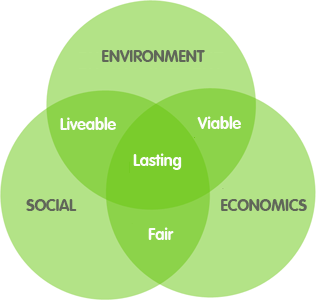"Man has the fundamental right to liberty, equality and adequate conditions of life in an environment of a quality that permits a life of dignity and well-being, and it bears a solemn responsibility to protect the environment for present and future generations." (United Nations Conference on the Human Environment, Stockholm, 1972).
"Sustainable development is development that meets present needs without compromising the ability of future generations to meet theirs." (Brundtland Report, 1987)
"Sustainable forest management can be defined as the management of forest plots for clearly defined objectives for the sustainable production of goods and services you want without compromising their value intrasic or compromising their future productivity and without causing adverse effects on the physical and social environment." (International Tropical Timber Council, 1991)
"The resources and forest lands should be managed in a sustainable manner to meet the social, economic, ecological, cultural and spiritual needs of generations to come." (UNCED Conference "Earth Summit" in Rio, June 1992)
"The sustainable development of forests is a development of forests according to current needs without compromising future productivity, ecological diversity or their ability to regenerate." (The State of Canada´s Forests, 1996-1997)
"Any development must be economically viable, environmentally acceptable and socially equitable." (Krebs and Greiner-mann, 2001)
The concept of sustainable development involves three key components (the Social, Environment and Economy), integrating the concepts of time (evolution) and space (geography).
To simplify these complex concepts, sustainable development aims to combine the following three objectives: economic efficiency, social equity and environmental conservation.

